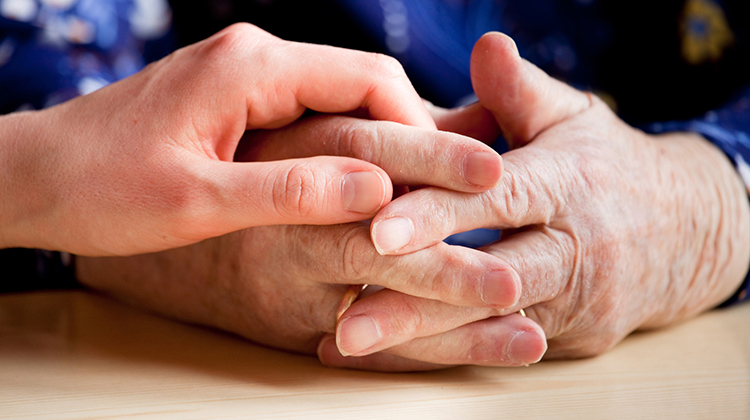“Where do I Start?”
For months that panicked question was the refrain in my head as I tried to fall asleep.
It is the question I asked myself over and over again as it became clear that my father was dying, that I was about to become responsible for my disabled mother, and this responsibility would include among other things: her safety, finances and home.
Being prepared is critical. Whether you have just become aware of the challenges involved with your parents’ aging, or a significant event like a hospitalization brings home their frailty, it is time to act.
Here are four questions to get you started:
• What do your parents want for end-of-life care?
• Do you have the right to talk to their doctors openly about their medical condition?
• Can you pay their bills if they became incapable?
• What resources are available in their community to help them?
Lessons Learned:
What do your parents want for their end-of-life care?
- My parents each have a Living Will and Healthcare Power of Attorney (healthcare directive.) There is a difference between the two, so it is a good idea to have both documents. The healthcare power of attorney is helpful in a specific situation where the treating physician cannot interpret the living will. Click here for more information on the differences: (Six Things to Know About Living Wills and HealthCare Proxy).
- The best plan is to have an attorney prepare these documents when estate planning. If that is not possible, in the State of New Jersey, you can get the forms from the NJ Department of Health and complete them for free. The form can either be notarized OR be signed and dated by you in front of two witnesses who must also sign and date the form. Your state may have the same provision, so check. For the Healthcare Directive, neither of the witnesses can be the healthcare representative. (Source: nj.gov advance directive forms).
- If you choose to “do it yourself” and draft your own documents or use a standard or statutory form, it is a good idea to review them with an eldercare lawyer. Certain HIPAA (Health Insurance Portability & Accountability Act) language needs to be included so that when it becomes necessary to use the Durable Power of Attorney for Health Care, doctors and lawyers will be able to communicate with each other.
- In addition, standard clauses may have unintended implications. For example, some commonly used clauses in living wills may forbid the provision of assisted breathing, including devices your parent may already be using if they are living with COPD. (Source: American Bar Association: Living Wills, Health Care Proxies)
Do you have the right to talk to your parent’s doctors about their medical condition?
- HIPAA (Health Insurance Portability & Accountability Act) of 1996 Privacy Rule establishes national standards to protect individuals’ medical records and other personal health information. (Source: HIPPA Privacy Rule).
- HIPAA has the potential to affect your ability to get information about your parent’s medical condition. Click here for more information on how HIPAA can affect your rights: (Smart Strategies for the HIPAA Privacy Law).
Can you pay your parents bills if needed?
- A Durable Power of Attorney for Finances — or financial power of attorney — is a simple, inexpensive, and reliable way to arrange to manage your parents finances if one or both become incapacitated (unable to make decisions for themselves). (Source: Nolo.com: Durable Power of Attorney How It Works).
- In New Jersey the document must be signed by your parent, signed by two witnesses and all signatures are done in front of a notary public who then notarizes the document. Click here for more information on how to become your parents durable power of attorney for finances: (Financial Durable Power of Attorney is Critical for Parents Care).
Understanding what is available in the community to help your parents.
- Each state and county has an Office on Aging. Do the research now so you know what services are available and if they are eligible. Click here for more information on what services are available in your parent’s community: (Help in Caring for Your Parents Using Community Resources).
Disclaimer: The material in this blog is for educational purposes only. It is not intended to replace, nor does it replace, consulting with a physician, lawyer, accountant, financial planner or other qualified professional.

